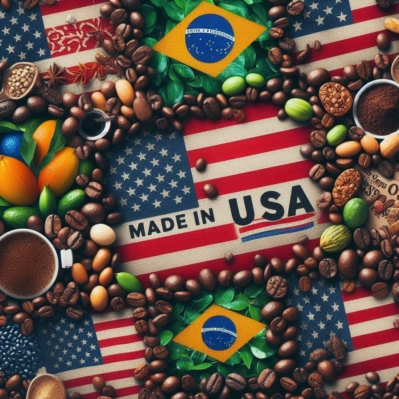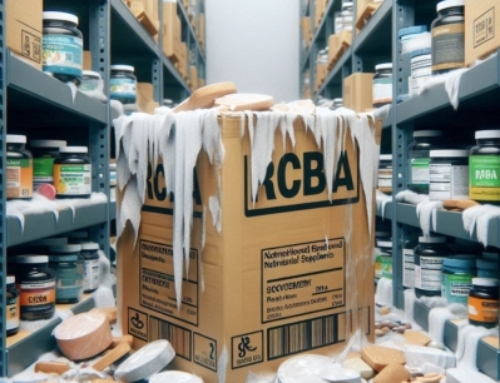Motivo Engineering, Llc V. Black Gold Farms
- Court: California State, Los Angeles (Western Division), District Court
- Case Number: 2:22cv1447
- Filed: March 3, 2022
- Judges: Christina A. Snyder | Jacqueline Chooljian
- Case Type: Other Contract (190)
- Cause: Notice of Removal — Other Contract
Parties Involved
- Plaintiff(s): Motivo Engineering, LLC
- Counsel for Plaintiff: Matthew John Fletcher| Michael Sapira
- Experts for Plaintiff(s): Mark Sarchet, ASA | Praveen Penmetsa
- Defendant(s): Black Gold Farms
- Counsel for Defendants: Alfredo William Amoedo| Thomas E Moore , III
Verdict Information
- Verdict Date: March 22, 2024
- Total damages awarded to Plaintiff: $0 (Verdict for Defendant)
About the Case
Cause
Black Rifle Coffee Company (Black Rifle) and its founders, Evan Hafer and Mat Best, faced a class action lawsuit. A group of consumers filed the lawsuit in the United States District Court for the Central District of California. The plaintiffs alleged that Black Rifle engaged in deceptive and misleading advertising practices. They claimed that Black Rifle falsely represented manufacturing a significant portion of its coffee products in the United States.
According to the complaint, Black Rifle prominently featured claims such as “Made in the USA” and “American-Made” on its product packaging. These claims were also present in the company’s marketing materials and on its website. This led consumers to believe that the company’s coffee products were domestically produced. However, the plaintiffs asserted that many of Black Rifle’s coffee products were actually imported from foreign countries. These countries included Brazil, Colombia, and Vietnam.
The lawsuit further claimed that Black Rifle strategically employed patriotic imagery and symbols. These included images of military personnel and American flags. Black Rifle used these elements in its marketing and branding efforts. This tactic allegedly created the impression that the company’s products were manufactured in the United States. It appealed to consumers who valued supporting American-made goods and businesses.
Moreover, the plaintiffs accused Black Rifle’s founders, Evan Hafer and Mat Best, of making false statements and misrepresentations about the company’s manufacturing practices. These statements further contributed to the alleged deception of consumers regarding the origin and production location of Black Rifle’s coffee products.
Injury
The plaintiffs contended that Black Rifle’s alleged false advertising and unfair business practices violated various consumer protection laws. These included the California False Advertising Law, the California Unfair Competition Law, and the California Consumer Legal Remedies Act. They claimed that these deceptive practices caused financial injury and harm to consumers. Black Rifle misled consumers into believing they were purchasing genuine American-made products. In reality, they imported a significant portion of the products from overseas.
As a result of the alleged deceptive conduct, the plaintiffs sought multiple remedies from the court. These remedies included restitution and refunds for consumers who purchased Black Rifle’s products under the false pretense of being American-made. They also sought injunctive relief to prevent the company from continuing its alleged deceptive marketing and advertising practices.
Additionally, the plaintiffs requested the imposition of punitive damages against Black Rifle and its founders. The court intended these damages to punish the defendants for their alleged willful and knowing engagement in false advertising and unfair business practices. The plaintiffs also sought the recovery of attorney’s fees and costs associated with bringing the class action lawsuit.
The overarching goal of the case was to hold Black Rifle accountable for its alleged deceptive marketing strategies. The plaintiffs aimed to ensure transparency and truthfulness in product labeling and advertising claims related to the origins and manufacturing of its products. They also sought to provide compensation to consumers who were allegedly misled and financially harmed by the company’s claims of selling American-made goods.
Damages
As a result of Black Rifle’s alleged false advertising and unfair business practices, the plaintiffs sought various remedies. These included restitution, injunctive relief to prevent further deceptive conduct, punitive damages, and attorney’s fees.
Jury Verdict
The jury found in favor of the defendants on all claims brought by the plaintiffs. The plaintiffs had alleged violations of various laws, including false advertising, unfair competition, and consumer legal remedies act. However, after considering the evidence presented during the trial, the jury determined that the defendants were not liable for the claims the plaintiffs made. Consequently, the jury did not award any damages or relief to the plaintiffs in this matter.
Court Documents: Available upon Request







Leave A Comment